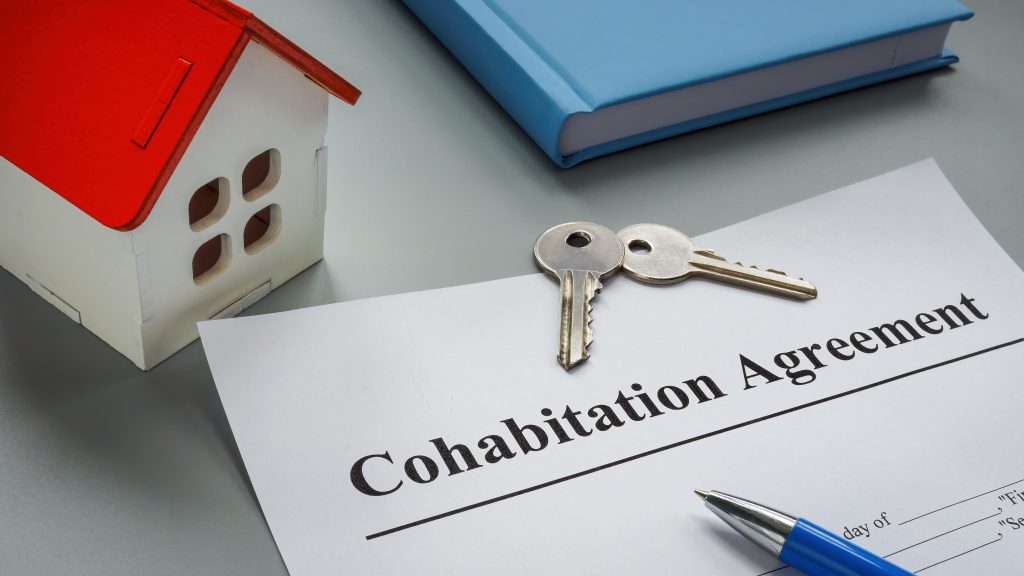Many couples, despite living together, never seek to legally formalise their living and financial arrangements. They mistakenly believe that the concept of a ‘common law’ husband and wife applies to them namely that they will automatically have financial claims against each other simply because they live together. The reality is far from this. Cohabitants do not have the same financial protection and security on the breakdown of their relationship as is afforded to married couples/those in civil partnerships. The law in England and Wales is far from satisfactory in this area. It is archaic, confusing, and outdated. Complex legal principles are often applied, particularly in relation to the division of property. Such principles are not easy to understand and can lead to expensive legal proceedings and delay.
This short article considers and explains how entering into cohabitation agreements can alleviate some of the problems described above and the circumstances that a person might consider entering into one.
What is a Cohabitation Agreement and why might you need one?
If you live with your partner or are about to start living with him/her, then you may wish to consider entering into a cohabitation agreement. These agreements usually record how existing assets are owned, record the financial obligations and responsibilities that a couple have to each other during their relationship and how assets, usually property will be divided on separation.
Cohabitation agreements have the following advantages:
- They create certainty and clarity thereby avoiding the current uncertainties of English law
- They reduce the risk of conflict when you are living with your partner. As stated above, such agreements clearly set out each person’s financial responsibilities during the relationship. Commonly, this includes the costs of maintaining the household expenses and payment of the mortgage
- They make life much easier if the relationship breaks down and you separate from your partner
- Fundamentally, they establish your future entitlements thereby protecting your future and that of your children. This includes how assets (often property) will be divided on separation
- Linked to the above, they can strengthen the position of the financially weaker party giving them similar rights to the party that is in the stronger financial position
How do I enter into such an agreement?
It is always important to seek legal advice prior to entering into a cohabitation agreement. A solicitor will commonly prepare the document. It is important to note, that each party will require independent legal advice as to the terms and implications of the document. One solicitor cannot act for both parties.
In the first instance and prior to consulting a lawyer, you may choose to discuss the general terms to be incorporated in the agreement with your partner. It might be helpful to draw up a list of the key areas that you want the agreement to cover. This may save time and cost.
Thereafter, you should each take legal advice regarding the preparation, implications, and execution of the agreement. It is important that you fully understand what the document means prior to signing it.
A cohabitation agreement can be modified at any future point in time in the event of a change in circumstances so do bear this in mind. You may not be able to cover every eventuality at the point you sign the agreement, and you should not try to. These agreements are often reviewed when children are born or when there is a significant change in one or both parties’ financial circumstances.
At the International Family Law Group LLP, we regularly prepare and advise upon Cohabitation Agreements. We would be happy to assist.
Lucy Loizou
[email protected]
The International Family Law Group LLP
www.iflg.uk.com
© February 2021
- Lucy Loizouhttps://iflg.uk.com/team/lucy-loizou
- Lucy Loizouhttps://iflg.uk.com/team/lucy-loizou
- Lucy Loizouhttps://iflg.uk.com/team/lucy-loizou
- Lucy Loizouhttps://iflg.uk.com/team/lucy-loizou











